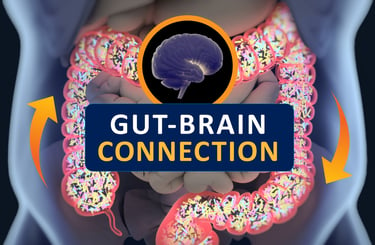eStoreRx™
Online Supplement Dispensary
eStoreRx™ is an easy direct-to-patient ordering & fulfilment program for lifelong wellness.
For over 40 years, Biotics Research Corporation has revolutionized the nutritional supplement industry by utilizing “The Best of Science and Nature”. Combining nature’s principles with scientific ingenuity, our products magnify the nutritional
eStoreRx™ is an easy direct-to-patient ordering & fulfilment program for lifelong wellness.
Biotics Research is proud to expand our commitment to education with the Wellness Unfiltered Pro Podcast. Each episode delves into key health topics and the clinical applications of our premier products. Through candid, insightful conversations, our team offers practical guidance to keep you informed and empowered as a healthcare professional.
February 19 2026
The journal Sleep Medicine Reviews recently published the results of a systematic review and meta-analysis examining melatonin supplementation among c...
 Researchers published in the journal Nature analyzed the gut-brain connection in mice and found that there is evidence of sympathetic nervous system activation outside of the gut and that it is controlled by microbiota via a gut-brain circuit.
Researchers published in the journal Nature analyzed the gut-brain connection in mice and found that there is evidence of sympathetic nervous system activation outside of the gut and that it is controlled by microbiota via a gut-brain circuit.
We know that connections exist between the gut and the brain. Previous studies have also shown that these connections regulate physiologic intestinal functions like nutrient absorption and motility, as well as brain-led feeding behavior. Until now, the theory behind the relationship has been explained by circuits that detect gut microorganisms and relay the information to the central nervous system so they can regulate gut physiology.
However, this study used models of gnotobiotic mice, which have atypically weak immune systems, and combined them with transcriptomics, circuit-tracing methods and functional manipulations. Transcriptomics is the analysis of gene expression under specific conditions. Circuit-tracing methods are technical techniques that can identify the connectivity of specific neurons in the nervous system. Functional manipulations are a way of testing hypotheses using functional assessments to determine the relationship between variables or events. In this case, they included chemogenetic manipulations, which involve the introduction of genetically engineered receptors or ion channels into specific brain areas.
The scientists found that the gut microbiome modulates sympathetic neurons outside of the gut. Their results showed that microbiota depletion leads to increased expression of the neuronal transcription factor cFos, which denotes the transmission of stimuli within a neuron or between neurons. Conversely, the colonization of germ-free mice with bacteria that produce short-chain fatty acids suppresses the expression of cFos in the gut sympathetic ganglia. Using tracing, they identified a subset of distal intestine-projecting vagal neurons positioned to play a role in microbiota-controlled modulation of gut sympathetic neurons. Further tracing from the intestinal wall showed brainstem sensory nuclei that are activated during microbial depletion, as well as more sympathetic neurons running from the central nervous system that regulate gastrointestinal transit.
The results reveal microbiota-dependent control of sympathetic nervous system activation through a gut-brain circuit.
Related Biotics Research Products:
Submit this form and you'll receive our latest news and updates.
*These statements have not been evaluated by the Food and Drug Administration. This product has not intended to diagnose, treat, cure, or prevent any disease.
© 2025 Biotics Research Corporation - All Rights Reserved
Submit your comment